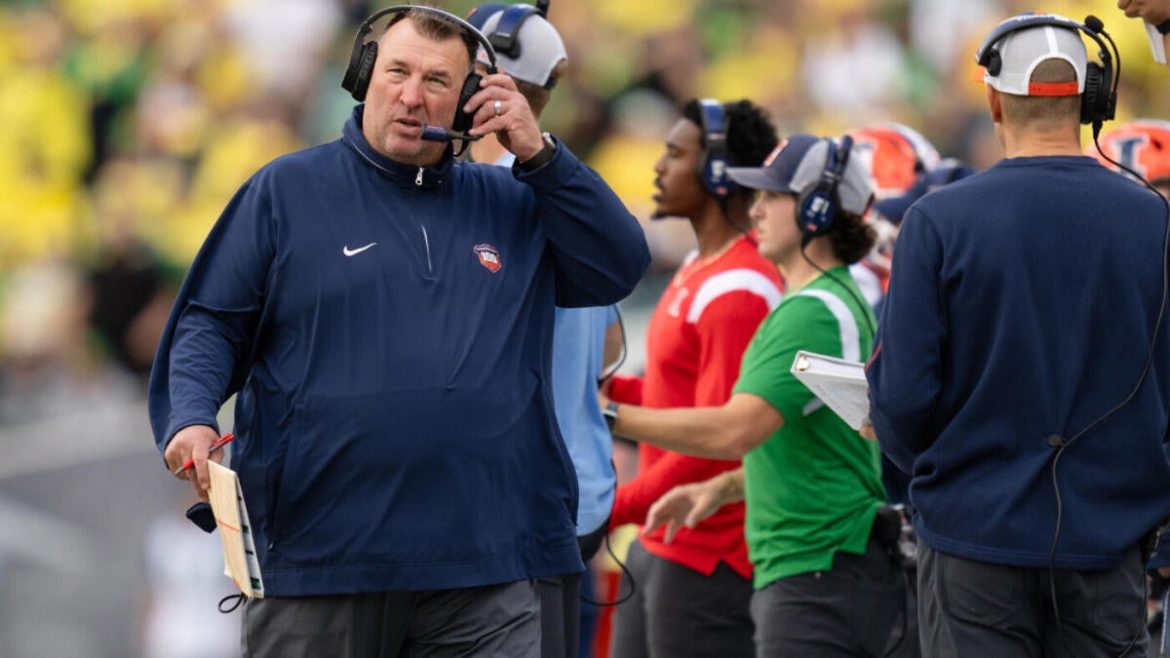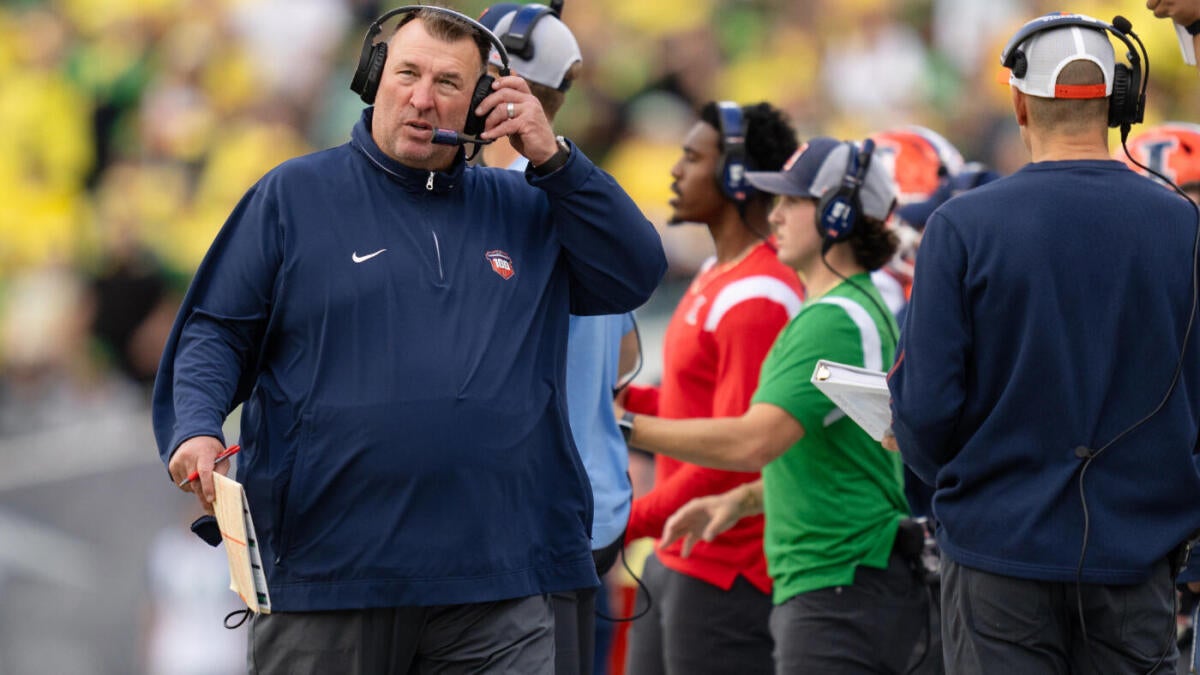Exploring the Parallels and Divergences between Brad Underwood and Bret Bielema
The ongoing conversation about Brad Underwood and Bret Bielema — two prominent figures in Illinois sports coaching — often raises the question of whether these coaches are the same or fundamentally different. The answer, intriguingly, is both yes and no. Their trajectories, tenures, coaching styles, and impacts on sports at Illinois offer a complex tapestry of comparison. This analysis dissects their roles, philosophies, and legacies to understand their unique and shared characteristics.
Coaching Tenure and Context
Brad Underwood, now in his seventh year, has a considerably longer association with Illinois compared to Bret Bielema, who is in his third year with the same institution. The duration of their involvement alone marks a significant point of differentiation. Underwood has had more time to embed his coaching philosophy, culture, and strategies into Illinois men’s basketball.
In contrast, Bielema’s shorter term as head coach of the Illinois football team suggests a phase of building and adjustment rather than the full establishment that Underwood has had the chance to achieve. Bielema came into a complex situation, assuming leadership of a Penn State program hampered by NCAA sanctions later on and taking Illinois football through a period of rebuilding and striving for recognition within the Big Ten.
Coaching Styles and Philosophies
Underwood and Bielema vary distinctly in their coaching environments—men’s basketball versus football—but similarities and contrasts emerge in their approaches and influences.
Brad Underwood’s longer tenure allowed Illinois men’s basketball to evolve as an entity deeply shaped by his vision. Observers note a clear imprint of his style on the team’s development and identity. This reflects both a strategic and cultural shaping of a program over time.
Bielema, meanwhile, displays a personal investment that goes beyond the technical facets of coaching. For instance, his impact on player development reportedly includes a holistic focus. Yahoo Sports highlighted how Bielema and his assistants invested effort not just in football skills but in connecting with players on life matters, creating a “college coach built in a lab” perception, referring to how intentionally crafted his leadership approach appears.
Moreover, Bielema’s leadership is marked by emotional narratives, such as coaching with a “heavy heart” during personal hardships, which underscores a humanistic side to his role. His deep, personal engagements potentially foster loyalty and resilience within his squad.
Achievements and Challenges
The contrasting timelines also reflect different achievements and challenges. Underwood’s longer tenure allows for a broader set of metrics to assess his contribution to Illinois basketball, including win-loss records, recruiting success, and sustained program growth.
Bielema’s Illinois football journey includes milestones such as recruiting Illinois’ best classes in recent memory and notable wins which reflect growing momentum for the program. Despite a strong 9-3 season and some of the best records Illinois football has seen in a decade, Bielema’s team faces challenges, such as lacking a realistic shot at the College Football Playoff. This points to a program on the cusp but still striving for elite status.
In addition, Bielema’s navigation through the NCAA sanctions context at Penn State illustrates his capability to lead through adversity, an attribute that distinguishes his coaching profile.
Public Perception and Media Narratives
Public and media perceptions of both coaches shape their reputations and influence fan and institutional expectations. Underwood’s longer-term presence contributes to a more defined narrative around Illinois men’s basketball stability, while Bielema’s story involves more immediate critique often mingled with empathy due to personal events and team circumstances.
For instance, Bielema’s public rebuttal to Lane Kiffin regarding College Football Playoff opportunities shows his willingness to defend his team’s achievements vocally and candidly, indicative of a coach who is engaged in the broader conversation about fairness and recognition in college sports.
Synthesis: The Duality of “Same but Different”
While Underwood and Bielema operate in different sports and have distinct coaching timelines and styles, they share some underlying qualities that make them central figures in Illinois collegiate sports:
– Leadership Impact: Both have significantly influenced their respective programs, though at different stages of program maturity.
– Commitment to Player Growth: Each invests in the holistic development of athletes, integrating life lessons with sport-specific training.
– Public Engagement: Both coaches actively participate in broader dialogues about college sports and their programs’ places within them.
– Resilience through Challenge: Their coaching careers illustrate navigating pressures, whether from competitive expectations or personal hardships.
At the same time, their distinct tenure lengths, sports contexts, challenges faced, and public perceptions highlight that they are distinctly themselves—no simple equation of sameness applies.
Conclusion: Appreciating the Nuanced Identities of Underwood and Bielema
Brad Underwood and Bret Bielema stand as pivotal figures in Illinois sports culture, embodying a compelling balance of similarity and divergence. Their similarities lie in leadership intensity, heartfelt investment in player development, and community engagement. Yet their differences emerge poignantly from the sports they coach, the time they’ve served, and their unique responses to the challenges and opportunities before them.
Understanding them as both “same and not the same” enriches the appreciation of their contributions to Illinois athletics. It invites stakeholders—fans, players, administrators—to recognize the layered complexity behind coaching identities and the evolving narratives that define athletic programs. Far from interchangeable, Underwood and Bielema represent unique chapters in Illinois’ ongoing sports story, each worthy of recognition on their own terms.





